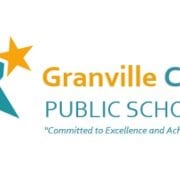Robert Hawkins graduated high school in 1981 and he’s pretty much stayed in the field of academia since he left Henderson to attend Appalachian State University as a new undergraduate.
His experiences growing up in Vance County, along with his extensive research in the field of social work and especially the effects of living in poverty, have served Dr. Robert Hawkins throughout his career.
Hawkins will become vice dean of the UNC-CH School of Social Work on July 1 and he was a guest on Thursday’s TownTalk to discuss his new role, his research and growing up in the area.
Although his primary role will be administrator – think of it like being a chief operating officer – in dealing with day-to-day activities, he said he’ll use his research into how people deal with poverty, the effect of poverty on individuals and on society, to inform how he functions as an administrator.
“Poverty is so much more than whether or not you have money,” Hawkins explained. He also wants to learn about people’s lived experiences in poverty and the processes that people go through that allow them to survive in poverty.
“My research is central to what I believe social work research should look like,” he said. “We look to move people to a better place” where they can thrive and rise beyond their current situation.
Hawkins said he would definitely use his own life experiences, as well as his experience as a researcher to help drive his decisions and the initiatives he wants to be involved in.
While the School of Social Work doesn’t make policy, it can be a resource to help policymakers in the legislature. The decisions that are made will be the result of a team effort, he said, adding that he views his role as a service position – a support position – rather than a position of power.
“My job will be to make sure the School of Social Work is doing the best it can and being the best it can be,” Hawkins said. “I will be making decisions with a lot of other people.”
Having faculty members with strong policy backgrounds can help evaluate existing policies and those that are being created, not to influence policy-making but help people understand which policies may be most effective and why.
He was attracted to the newly created vice dean position by the spirit of community and the chance to collaborate in making decisions within the realm of social work – and the impacts that can be felt within the state and maybe across the nation.
The idea of being able to “implement a vision that you’ve created together” is most appealing, he added.
The UNC School of Social Work is ranked fourth in the country, on the campus of one of the foremost public universities in the nation. “Who wouldn’t want to be there?” he said.
The idea of social justice is something that trained social workers have done for decades, Hawkins said. “When we talk about social justice, we’re talking about how people equitably exist in society. It’s the shared human worth of all people – it’s not controversial, or at least it shouldn’t be.”
Talking about social justice is just one of the things that Hawkins said he enjoys about his work. “Social work has given me opportunities that I could have never imagined,” he said. A true social worker is a researcher, someone who can resolve conflict, engage in mediation and who can understand everyday human behavior.”
He said he thinks about this a lot and one area he keeps circling back to is education. He remembers one high school English teacher who really helped him and believed in him and his potential. “That person guided me in the right direction,” he said.
Then, teachers were not so over-stretched, he said, and they could pay closer attention to students’ needs, especially their educational needs.
“Do teachers today have the time to pay that kind of attention to their students? I’m sure many do, but it’s something that we should be encouraging and helping teachers accomplish. We’re not seeing that out in the world right now.”
With family still living in Henderson, Hawkins finds himself in Henderson fairly often. He loves to stop in at his favorite barbecue restaurant (he didn’t identify it, but did reveal that he grew up just a ways from Skipper’s Forsyth’s).
He recalled his childhood, growing up in a house near Satterwhite Point without running water and working in tobacco fields.
In 1980, he said the family was able to move from that house to a mobile home. “This was a big deal,” he said. That move marked a significant economic change for his family. “For me, it wasn’t a step down – it was a step up.”
CLICK PLAY!








